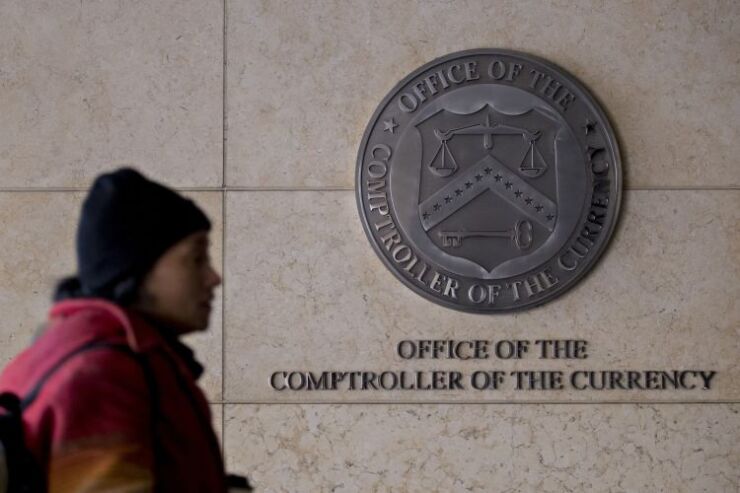Key insight: Bridge joins Circle, Ripple and Paxos in seeking a regulatory charter to serve customers
Expert Quote: "We've long believed stablecoins will be a core, regulated financial building block," Bridge co-founder Zach Abrams wrote on X. "This regulatory infrastructure will enable us to tokenize trillions of dollars and make this future possible."
Forward look: The wave of fintechs seeking charters may only continue as the administration's digital-asset-friendly regulators have signaled openness to encouraging "innovative" business models.
Stripe's stablecoin platform Bridge on Tuesday applied for a national trust charter from the Office of the Comptroller of the Currency, according to a post on X by one of the company's co-founders.
The move, announced by Bridge co-founder Zach Abrams, was marketed as a way for the company to build out its stablecoin business within the regulated financial perimeter, with plans to provide custody services, issue coins and manage reserves.
"We've long believed stablecoins will be a core, regulated financial building block," Abrams
Bridge, which was acquired for just over a billion dollars by Stripe in February,
Abrms previewed the company's intent to apply for a charter in September, according to Bloomberg, adding that the company will also seek a New York State trust charter. At the time of this piece, the OCC has not posted the application filing to
Stripe is now the latest crypto firm seeking a national trust charter from the Office of the Comptroller of the Currency, just weeks after stablecoin issuer and exchange Coinbase's
That increasing interest in trust charters from crypto firms has gotten the banking industry's attention, and banking trade groups have been urging regulators to carefully consider the ramifications of approving such charters, which bankers generally oppose. In July, the American Bankers Association
Trust companies are not new, but they've historically served a niche in the financial marketplace, allowing financial institutions to provide custodial services to their customers, like trust and estate management.
The OCC began exploring special-purpose charters in 2016 and, under then-Acting Comptroller Brian Brooks in 2020, examined the legal and practical groundwork for a proposed "payments charter." Though that initiative never launched, the exploration laid the foundation for the agency's Letter
Critics of allowing fintechs to gain national trust charters have
More broadly, banking advocates have been worried for some time that the growth of stablecoins could siphon trillions of core deposits from community banks, undermining their ability to fund local lending. An estimate from the Treasury predicts that stablecoins could grow to over $6 trillion in volume, a tectonic shift in the financial system that banks fear would pull primarily from bank deposits, reducing banks' profitability and their ability to drive economic growth.
Still, regulators have been signaling increasing openness to fintechs entering the banking perimeter in the Trump administration. The OCC







